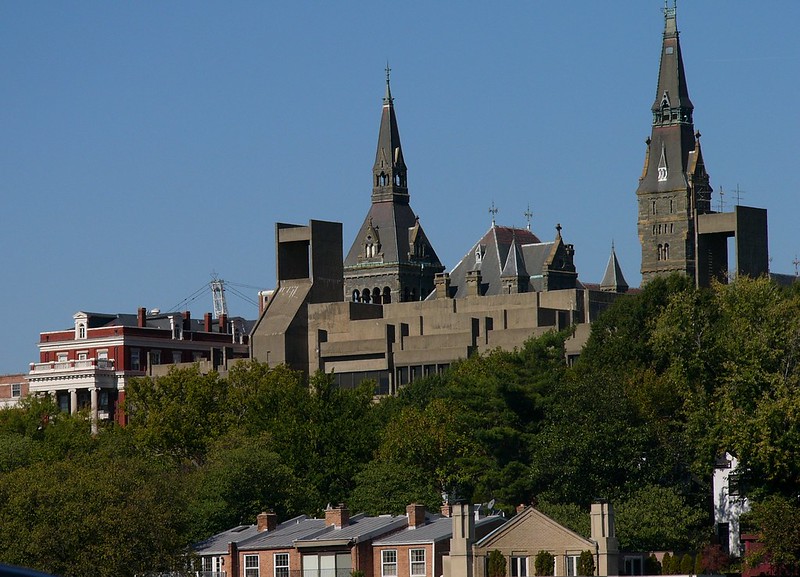In the amended filing, attorneys for the plaintiffs claimed that Georgetown University had put about 80 applicants on a “special” admissions list—a list allegedly reserved for applicants whose families were wealthy, or whose relatives had histories of making donations to Georgetown. Meanwhile, at MIT, two children recommended for admission by “a wealthy banker with ties to a university board member” were given preferential treatment. Both applicants’ names appeared on a “cases of interest” list, despite being candidates who MIT “would really have not otherwise admitted.”
A class-action lawsuit filed against some of the nation’s most prestigious colleges has been amended to reflect new allegations that schools like Georgetown University and the Massachusetts Institute of Technology rigged their own admissions processes to favor overtly wealthy applicants.
According to The Hill, the amended filing broadly asserts that the defendant institutions—including Georgetown, MIT, the University of Pennsylvania, and Cornell University, among others—had, in effect, formed a “price-fixing cartel.”
The alleged “price-fixing cartel” purportedly conspired to increase the costs of attendance at prestigious universities by unlawfully considering certain aspects of students’ financial circumstances when making admissions decisions and awarding need-based aid.
In the amended filing, attorneys for the plaintiffs claimed that Georgetown University had put about 80 applicants on a “special” admissions list—a list allegedly reserved for applicants whose families were wealthy, or whose relatives had histories of making donations to Georgetown.
Meanwhile, at MIT, two children recommended for admission by “a wealthy banker with ties to a university board member” were given preferential treatment. Both applicants’ names appeared on a “cases of interest” list, despite being candidates who MIT “would really have not otherwise admitted.”

The University of Pennsylvania also allegedly used the term “BSI,” or “bona fide special interest,” for a small number of students admitted at a much higher rate than other applicants.
Last year, former University of Pennsylvania dean of admissions Sara Harberson testified that “BSI” applicants meant that the student’s family were donors or had otherwise had connections to members of the school’s board.
BSI students, Harberson said, were considered “untouchable” and “would get in almost 100 percent of the time.” Admissions officials generally felt powerless to deny these candidates, “even if the student was incredibly weak, even if the student had a major issue in the application.”
However, the University of Pennsylvania and many of its co-defendants have continued to deny any and all wrongdoing.” In a statement, a Penn spokesperson said the school sees “no merit in this lawsuit,” believing that it was merely filed to “embarrass the university about its purported admission practices on issues totally unrelated to this case.”
“The actual evidence in the case makes clear that Penn does not favor in admissions students whose families have made or pledged donations to Penn, whatever the amount,” the University of Pennsylvania said in a statement. “In fact, the University takes great precaution to ensure that no such preference is given. As a result, only qualified candidates are admitted.”
MIT issued its own statement, saying that “the potential for philanthropic gifts had no bearing on these isolated cases, and in fact our records reflect that the children of wealthy individuals routinely receive disappointing news from MIT.”
Meghan Dubyak, a spokesperson for Georgetown, also indicated that the documents featured in the amended complaint “provide a limited and inaccurate view of Georgetown admissions.”
Georgetown, Dubyak said, only admits “students who will thrive in, contribute to and further strengthen our community.” It does not “knowingly solicit or accept gifts from individuals who have or may soon have a relative or person of close personal interest applying for admission o the university.”
The New York Times notes that the lawsuit originally named 17 defendants. Of these, ten schools have already settled, paying a cumulative total of $284 million to the plaintiffs.
Sources
Suit Accuses Georgetown, Penn and M.I.T. of Admissions Based on Wealth


Join the conversation!